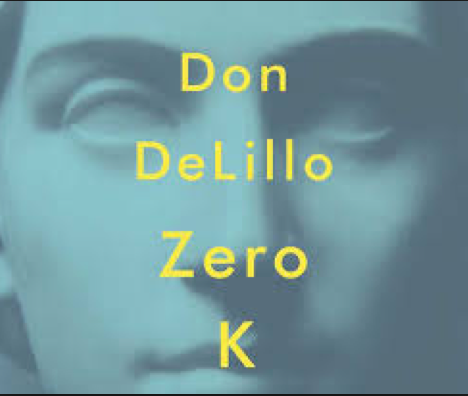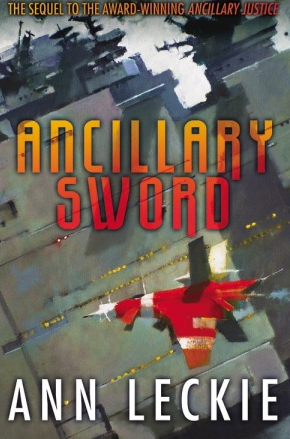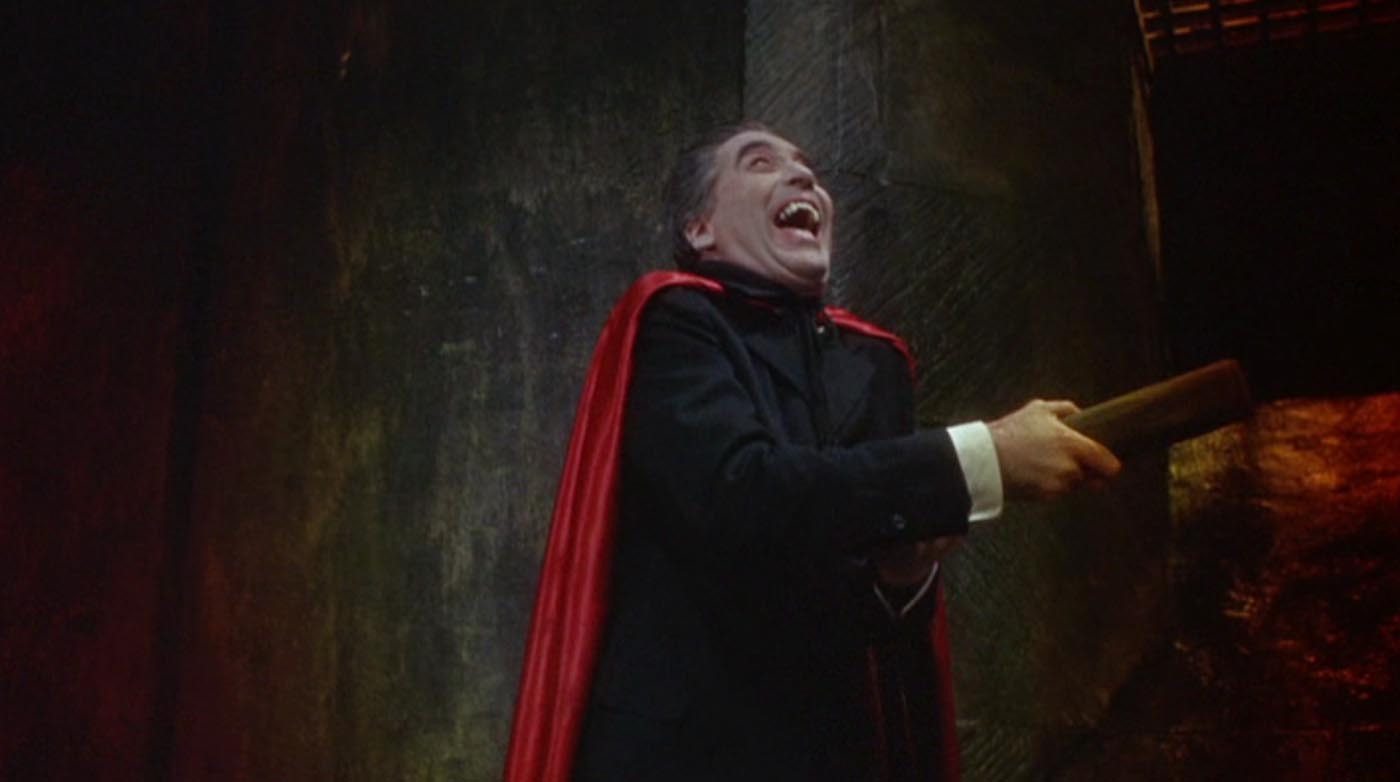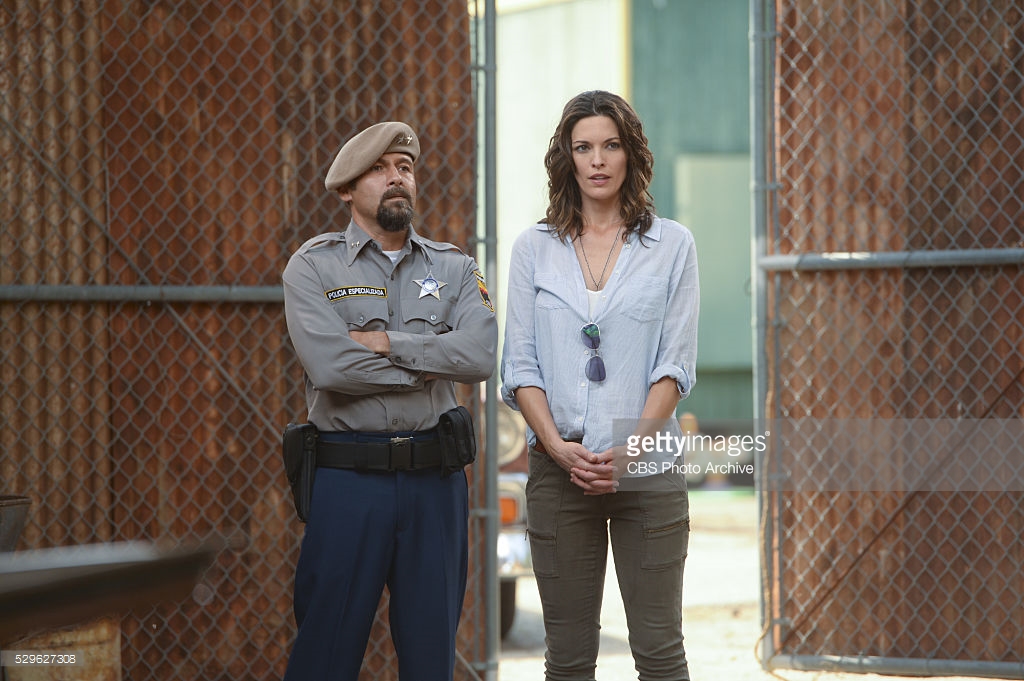Faced with the task of finding the right subject for her final post for Comics & Cola, Zainab Akhtar chose a comic about a talking bear. “Having a ginormous talking bear as a life mentor sounds interesting and unpredictable,” she wrote. “The ability to be both cute and scary is an important one.” I mean, have truer words ever been written? It was the perfect thing for a sad moment—and though I doubt it happened this way, I like the idea of her typing up her thoughts on that talking bear and thinking, with satisfaction, I rest my case.
One of the best things I read last year was Zainab’s review of Venom #1 by Mickey Zacchilli. I don’t exactly keep a running list, but that’s probably my favorite review of anything, ever. I like the way its casual but considered style matches the vibe of the comic. I like the perfect way she describes the dream logic meme riffs of Tumblr when she talks about the opening spread. Just the details she picked out are more entertaining to me than most things. An “ice-cream van trundles past” in the background of a fight scene. “Eddie hangs out with his alien symbiote friend who snarfs popcorn while he watches TV.” Trundles. Snarfs. Even at the level of word choice, that review gives me a good feeling.
I’m pretty sure I would’ve dismissed Venom #1 if I’d encountered it anywhere else. I’m old and chronically uncool, and to me, at a glance, it looks like something someone doodled on a napkin. Studying those images through Zainab’s eyes, their charm was so striking and obvious that it almost felt like I was the one who discovered them. It makes me think of how David Foster Wallace described the work of a writer as showing readers how smart they are. That’s much harder to achieve than you might think. (It’s so much easier to show readers how smart you are.) Comics & Cola has—had—a generosity of spirit that’s sorely missing in comics writing. That’s part of what made it feel so fresh.
Sometimes I wonder how other people read reviews. I usually wait until after I’ve read or watched or listened to the thing. Part of it is just that I like to think my own thoughts before I think about someone else’s. But also, if I’m being honest, there’s this other, grosser thing where I find it really hard to care about someone else’s opinion in the absence of my own.
Uncharacteristically, I’ll often read Zainab’s reviews when I have no intention of checking out whatever it is that she’s writing about, which is probably more often than not. I sort of don’t care that she’s a great critic, though she plainly is. Her stuff has always felt more like a novel to me. Like something I want to read on vacation. So much of the writing I consume day to day just feels like it’s for nightmare people, by nightmare people, regarding our respective journeys through this nightmare world. Comics & Cola was basically the opposite of that. It was also the opposite of everything I find deficient and uncharitable about my own writing, and maybe more generally myself.
The first time I was asked to write for Comics & Cola, in 2014, I told Zainab I wasn’t sure I keep up with enough comics to offer an opinion. “Who cares?” she wrote back. “It’s impossible to read everything anyway.” In a milieu that’s all too often about gatekeeping, she doesn’t put a lot of emphasis on expertise, though she has plenty. Her criticism seems to spring from that same attitude. It’s positive, but not in that tedious “let me explain the importance of this to you and rehash the plot” mode that I see everywhere. When Zainab writes about her love for comics, she doesn’t just convey that enthusiasm; she makes you feel it yourself. It’s an incredible talent—a magical talent, really—and so far as I can tell she’s the only one among us who has it.
Zainab is frequently and rightfully cited as one of the best and brightest voices in comics crit. But for a long time now, I’ve noticed a real disconnect in how Comics talks about Zainab and how Zainab talks about Comics. Many times over the last year and a half or so in particular, I’ve read—on her website, on Twitter, and in her emails—about the frustration and sadness that the comics “community” has made her feel. “Spent most of last year in depression for the first time in my life as a direct result of comics ‘discourse’ around Charlie Hebdo,” she tweeted in February. The occasion for her comments that day was the buzz surrounding what was by then a regular tradition at the Comics Journal, the recapitulation of an argument that’s as old as the tragedy itself: that calling out Charlie Hebdo for racist and Islamophobic imagery is tantamount to saying the victims deserved it.
Victim blaming. These are words I understand. Sometimes I wonder if the people who have thrown them around know that it’s a real and terrible phenomenon in the world, not just shorthand for I think that was gauche. To my knowledge, there hasn’t been a single soul in the kingdom of comics who’s given a cogent explanation as to how blaming the victims applies to the Charlie Hebdo conversation. Granted, as a rule, I assume that comics critics aren’t ISIS sympathizers. But even in that inflammatory piece that Carta Monir wrote for this website—you know the one—the proof is plain to see: “The fact that twelve people are dead is hateful, and I can only pray that their attackers are brought to justice.” And also: “Nobody should have been killed over those cartoons.”
I don’t want to misrepresent the tone of that piece, which was angry, or the critique, which was blunt. But I understand why it was angry and blunt, just as I think I understand the original sentiment behind Je Suis Charlie. In those early hours and days after the tragedy, people perceived different states of emergency, chiefly threats to freedom of speech and rampant Islamophobia. The emergency that Carta perceived was the lionization of racist and Islamophobic work, and her piece put an essential check on a conversation that was, in that moment, out of control. But at the same time, some of her harsh (and in places, incorrect) words set the stage for what would become the two “sides” of the Charlie Hebdo conversation—sides that map, however imperfectly, onto how the Hebdo coverage played out at the Comics Journal and here at HU.
Contrary to what many seem to believe, those sides were never diametrically opposed. The chief complaint against that HU piece, and subsequently anyone who wrote about racism and Charlie Hebdo, is that it condones or even celebrates murder. For more than a year, to say anything ill of the work of the dead was regarded as monstrous in the face of grief—a grief that was itself unassailable, and only ever credited to one side. My side, the heartless victim blamers, consists purely of goblins who are incapable of empathy, or so I’ve heard. It’s all about the clicks, baby! Any writer who has appeared here at the Hooded Utilitarian can tell you that! Why, I’m quaking in my chair even now in anticipation of the multiple, if not dozens, of clicks this very piece is sure to get.
I’ll admit that my powers of empathy have been taxed, not by the tragedy, but by the discussion surrounding it. I can certainly see how grief might have led Tom Spurgeon to change his Twitter avatar to a Hebdo caricature of a hook-nosed Muslim in an unthinking moment. I understand less why his explanation for that would be I deliberately chose the grossest thing I could find, or why such an admission wouldn’t be followed by something like in retrospect, that was shitty and I apologize. Instead, when asked about it in an interview with the New York Times, Spurgeon said, “Some people questioned such work as simply cruelty hiding behind the idea of free speech. But when it comes down to killing people, for me, that’s black and white.”
Maybe I’m missing something, but I can’t for the life of me understand the relationship between those two sentences. Can you not interrogate someone’s work and believe that killing them is bad at the same time? Because I have to tell you, the whole issue of killing people is black and white for me, too. I don’t want shitty satirists, Tom Spurgeon, or anyone else who exercises their right to propagate a garbage opinion to get murdered. I don’t even want them to have a bad day.
In good faith, I’ve tried to understand why Art Spiegelman thought that “Cartoonists Lives Matter” was a good slogan. I’ve also struggled to understand why my “side” has been consistently and aggressively derided and misrepresented by people like Spiegelman, Neil Gaiman, and a whole host of people at the Comics Journal. I was floored when Tim Hodler had the gall to say that Charlie Hebdo’s “How Did We End Up Here?” editorial, which was authored by cartoonist Laurent “Riss” Sourisseau, “is not strictly speaking a comics story.” What is it that constitutes a comics story these days, I wonder? The lengthy takedown of Carta’s year-old essay that Hodler had published less than two months before? A single link in a blog post and TCJ’s discussion of Sourisseau’s bile-filled screed against all of Islam was done and dusted. Whatever happened to TCJ’s regular reports on why Charlie Hebdo’s treatment of Muslims is so defensible? Cynthia Rose, girl, where you at? Remember when you wrote that people who criticized Charlie Hebdo “shared a certain characteristic stench”? Do you still think that shit? I want an update.
Of course, on some level, Hodler was right: the editorial wasn’t a comics story, insofar as comics wasn’t claiming it. In early April it finally became fashionable to call out Charlie Hebdo for Islamophobia. What a time to be alive. Comics swiftly distanced itself from “that asinine Charlie Hebdo editorial,” drawing no connection whatsoever between the shitshow that the CH “conversation” had been and the bald-faced nightmare views expressed in that editorial. I mean, what if…what if those of us who’d been banging on about Charlie Hebdo being racist for the last 16 months weren’t just desecrating the names of the dead? And is it just possible, given that Zainab had announced she was shuttering Comics & Cola due to Islamophobia mere weeks before that happened, that the relationship between the bigotry on display in that editorial and the stuff that’s been going on within the world of comics might warrant some serious, sustained reflection? The ‘discourse’ that made Zainab feel depressed—that wasn’t just a bunch of trolls and Twitter eggs. That was us. Because in case you haven’t noticed, the two sides of this conversation haven’t had anything that resembles the serious dialogue that these issues demand and deserve.
Instead there’s been been a lot of emphasis on talking about Zainab’s decision as a matter of self-care. Admittedly, I’m sort of a self-destructive disaster person, but I hate that fucking phrase, which for me conjures the image of some Before Times tubercular quitting her life to take the waters. Let’s be clear: Zainab is an incredibly tough person who was worn down by a hard thing. And instead of giving up, she’s started a host of new projects to find a way to engage with something she loves in a way that doesn’t compromise her health. I hate that stories like hers are so often framed in terms of female fragility.
To date I haven’t seen any substantive discussion of Zainab’s decision other than vague denouncements of Islamophobia, which predictably has been framed as something Other People Do. Heidi MacDonald, for instance, used her own tribute to Zainab as an opportunity to affirm the greatness of our “community.” Of all the posts that MacDonald writes every day, that’s the one in which she chose to assert that “people who say comics have a particularly toxic environment are both right and wrong.” There’s no doubt that MacDonald meant well, but I can hardly imagine a more condescending and absurd move than praising the “close knit community” in a post about the closure of Comics & Cola.
At the risk of sounding like an asshole, I don’t see…whatever this is…as a community at all. I think of it more as a small town. I grew up in a Tennessee cowtown where everyone knew each other, or at least knew of each other…and comics reminds me of that. Unlike many (maybe most?), I don’t perceive these two degrees of Kevin Bacon as a net plus. In fact I believe that’s exactly what insulates people from exposure or critique as they indulge and indulge and indulge in a spectrum of bad behavior ranging from mild unprofessionalism to straight-up sex crimes. Sure, I’ve met some great people in comics who I think of as real friends—but I’d like to think that if those people did something indefensible, I wouldn’t feel moved to aggressively defend it. History suggests that someone could come forward tomorrow with proof that Chris Sims invented bum fights and he’d still be writing for Comics Alliance. Chris learned a lot from those bum fights. It’s all good.
Does anyone remember Zainab’s measured critique of the Lakes festival? Organizer Julie Tait and Chris Butcher, who organizes the festival’s sister event, engaged in behavior that I can only describe as an extensive, if almost certainly unintentional, gaslighting campaign that systematically undermined Zainab’s carefully worded claims. I mean, I’m hardly an event planner. I can barely tell time. Still I feel confident—very, very confident—that if you run an event and someone’s feedback is, “Yikes, racism,” it’s your responsibility to handle that information with care, credulity, and respect. Maybe you can do something to address it; maybe you can’t. But what you definitely should NOT do is accuse that person of being out of order and/or totally off base. That’s not how professionals should treat a colleague, nor is it how event planners should treat anyone in their audience. Except, you know, this is Comics—an ecosystem that thrives on abuse and other ill-considered reactions that, in most other forms of media, would be relegated to the comments section. In writing comics stuff, you’re not just going to take shit from Chris Sims trolls; you’re also going to take it from event organizers, publishers, peers, and creators. That’s just how it is.
If Comics is patient zero for all the cultural anxiety that’s been kicked up surrounding political correctness, what I see here makes me really worry about the world. In comics, as on the Left, the concept of political correctness is often articulated by white men who have a vested interest in characterizing it as the shrillest, most misguided people you went to college with. They frame it as a Theater of Correcting People because their experiences have not given them the ability to imagine a reality in which they could be wrong.
Like everyone else who’s “politically correct,” I hate that term, but I’ll adopt it for the moment to explain that, to me, political correctness doesn’t have anything to do with R. Crumb or Gary Groth or Jonathan Chait or Freddie DeBoer or Matt Bruenig or Jon Ronson or whoever else. I could care less about making them feel bad about about themselves (and anyway I believe that’s impossible). My political correctness is just a very simple practice of trying to believe a person who tells me that someone or something has caused them pain. In comics and beyond, I try to believe women, POC, and queer people who say they’ve been mistreated or abused. I believe them when they say they’re frightened. I believe them when they say they’re uncomfortable. I believe them when they say that something made them feel a little funny. This is literally the least I can do.
I believe them for a lot of reasons, most of which are logical and statistically significant. I see the “rewards” they reap when they say those things. I recognize the small margin of error. But I guess I believe them most of all for the times I was unable to believe myself.
However dear you may hold the notion of community, consider for a moment what kind of hellscape this milieu must be that it robbed Zainab—someone who loves writing about comics, and whose writing about comics people love to read—of her willingness to participate in it. Sit with that for a moment, will you? Ask yourself: is it possible that, even though it has been invisible or puzzling to me, the experience she’s talking about is real? Is it even possible that I unwittingly played a role in it? Consider whether or not there’s something you might do to make it different.
On the very day that my last column for Comics & Cola ran, two things happened: its subject announced his promotion, and its publisher announced that she was shuttering her website. These two events aren’t related (or even analogous), but together they make a certain sort of sense to me. I’ve been hearing similar stories for years, though of course some are way worse than others. I expect we’ll keep passing them down through the generations like some shitty folk tale until finally, one day far in the future, they’ll be regarded as relics of some distant backwards world.
What else can I say about Zainab Akhtar? I’m her friend, her fan, and all too often her inferior. Comics & Cola was a good place, and now it’s gone. I don’t have a joke or a take or a pithy observation. I don’t have a single fucking thought about it, really. Just this feeling I can’t quite name.
I know it’s heavy.
This piece was published in conjunction with “Comics Are for Everyone, or So We Say: Goodbye Comics and Cola,” a collection at Women Write About Comics.











